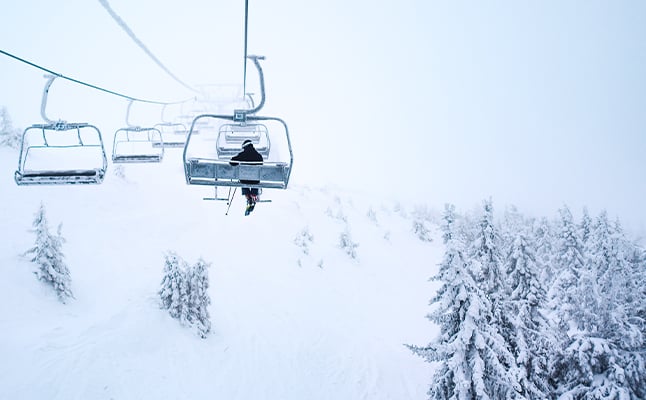Schoolchildren and their parents and grandparents are now beginning to plan their winter holidays at the end of February and early March. Minister of Health Bent Høie on Friday stressed that while they are welcome to make plans for trips in Norway, either to their cabin or a hotel, people should avoid international travel.
“It would be a violation of our travel recommendations to go abroad during the holiday,” Høie said at a press conference about the Covid-19 pandemic Friday.
“The risk is too high. Both in regards to catching the virus, but also due to changing restrictions in countries you are visiting and your chances of being able to return,” he added.
Norway is currently advising against international travel until April 15th.
READ ALSO: Norway advises against all foreign travel until after Easter
The minister also emphasised that people who do decide to go on holiday in Norway, should take extra precautions, maintain social distancing and avoid public transport. People are also advised to do their grocery shopping in the municipality where they live permanently.
The government has published a list of pointers and recommendations for people planning on travelling in Norway during the winter holiday:
- Stay home if you suspect you may be ill. Get tested as soon as possible if you suspect you may have been infected with coronavirus.
- Be prepared to change your plans in case of local outbreaks, either near your home or in the area you are planning on visiting.
- Avoid public transport.
- Be prepared that you may have to quarantine if a coronavirus outbreak happens at the hotel you are staying at. Maintain social distance to other guests and adhere to the hotel’s measures and restrictions.
- If the measures in your home municipality are stricter than in the municipality you are visiting, you should adhere to the measures of your home municipality.
- Minimise social contact.
- Do not receive more than five guests in your home or cabin. Try to socialise outdoors. Minimise the number of guests that spend the night.
- Do your grocery shopping in your home municipality before departure.
- Avoid crowded places where maintaining social distancing is difficult.
- Try to choose outdoors activities if possible.
- Wash your hands often.



 Please whitelist us to continue reading.
Please whitelist us to continue reading.
Member comments